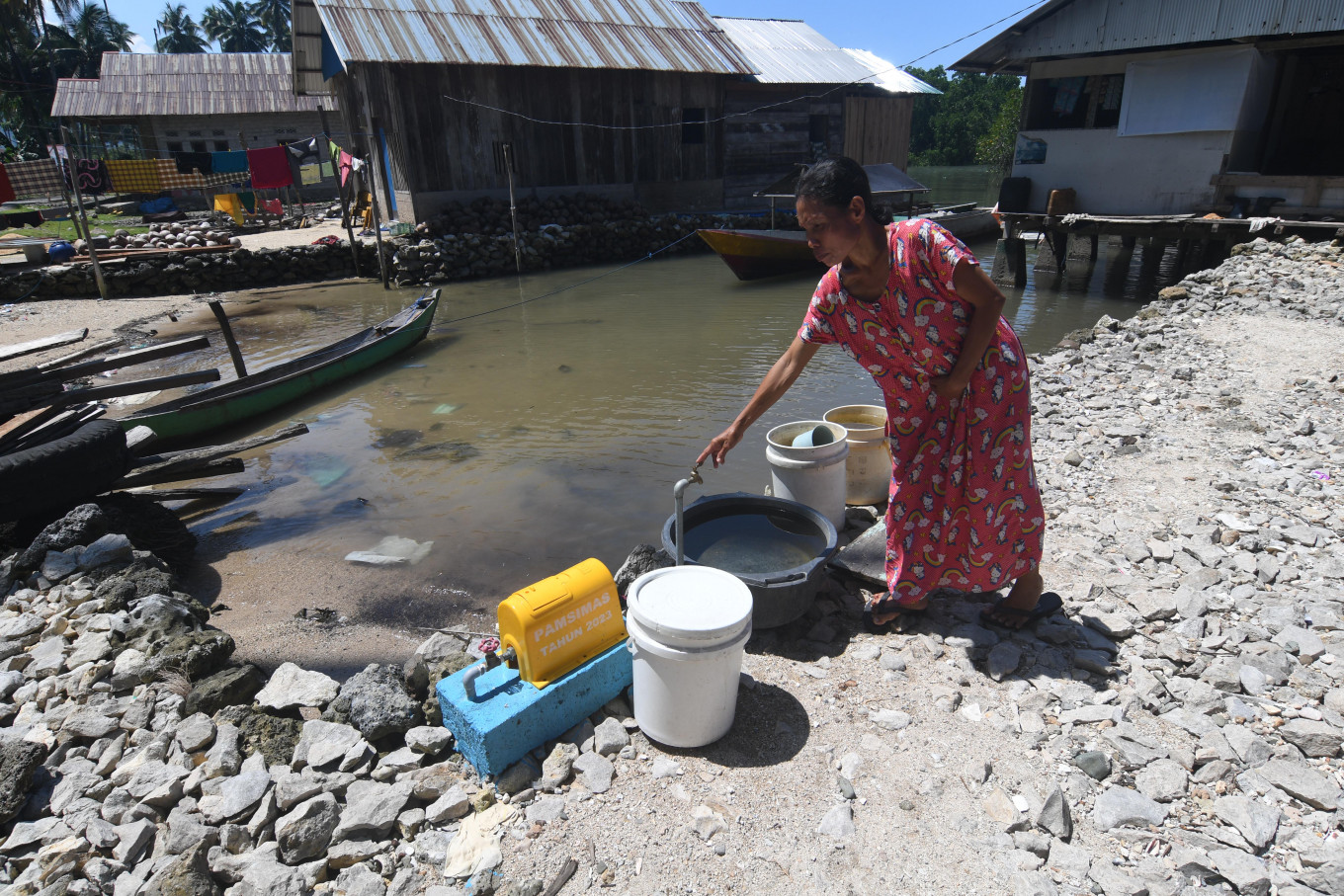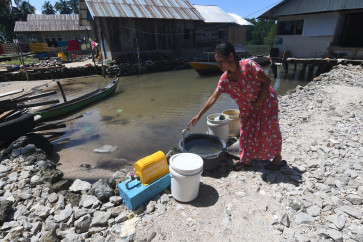Popular Reads
Top Results
Can't find what you're looking for?
View all search resultsPopular Reads
Top Results
Can't find what you're looking for?
View all search resultsBeyond the surface: Public-private partnerships in Indonesia’s drinking water supply
In the present era of limited water resources and unequal access, putting fair water distribution first emerges as a cornerstone for societal resilience.
Change text size
Gift Premium Articles
to Anyone
W
ater, being both a vital resource and a poignant symbol of life, underscores the critical need for equitable distribution and sustainable management practices. In the present era of limited water resources and unequal access, putting fair water distribution first emerges as a cornerstone for societal resilience. Regrettably, despite Indonesia's status as a water-abundant nation, it still grapples with numerous water challenges, including infrastructure deficiencies, rapid urbanization, compromised water quality and escalating climate change impacts, all of which impede the equitable distribution of water resources among its people.
Ensuring equitable water distribution, particularly in the realm of potable water, is of paramount importance. Consequently, the water governance framework, spanning from upstream to downstream levels, necessitates a robust and sustainable structure to ensure fair allocation of water resources to all individuals. A fundamental tenet of effective water governance lies in recognizing water as a public good rather than a mere commodity.
This principle resonates with Indonesia's constitutional mandate entrusting the management of land, natural resources and water to the state for the collective prosperity of its people. Positioned as the grundnorm at the apex of the legal hierarchy, this constitutional mandate demands strategic implementation, particularly concerning water governance.
Amid ongoing discourse on the governance of the drinking water sector, there has been a resurgence in recent years of the argument in favor of managing water distribution entirely through the public sector. The most practical contemporary strategy at the downstream level seems to be the control of water distribution through the public sector, assisted by regionally owned drinking water companies (PDAM). This strategy guarantees active government participation in protecting the public's responsible access to drinking water.
Conversely, at the upstream level encompassing water production and treatment, a collaborative framework between governmental and non-governmental sectors emerges as a prevailing paradigm. Public-private partnership (PPP) schemes, known as Kerjasama Pemerintah dan Badan Usaha (KPBU), have been extensively employed to undertake numerous water projects across the nation.
PPPs have emerged as a viable strategy for governments grappling with budgetary limitations, particularly in infrastructure projects, especially within the water sector. PPPs offer an alternative pathway to support public funds in financing and advancing development initiatives. Through collaboration with private entities, governments can access additional financial resources to undertake essential projects that might otherwise face delays or be scaled back because of convoluted bureaucratic processes and public knowledge asymmetry. Furthermore, PPPs provide governments with access to private specialized expertise and efficiency.
Private partners are frequently motivated to oversee projects with efficacy and proficiency to optimize financial gains, potentially resulting in enhanced service quality for users. In the context of the water sector, where urgent infrastructure requirements intersect with funding and substantial knowledge gaps, PPPs serve as a mechanism to expedite the execution of vital water infrastructure. Recognized increasingly as a pragmatic solution, PPPs enable governments to solicit resources while meeting the escalating demands for infrastructure development in the drinking water supply sector.



















